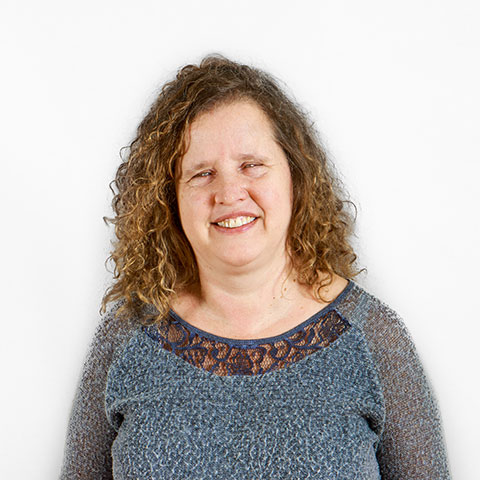We are here for you.
People who are affected by a visual impairment, blindness, a hearing and visual impairment or deafblindness and their relatives can count on our support.
Blindness, deafblindness, visual impairments and hearing and visual impairments can cause many changes in people’s lives and even pose existential questions. For most people who are visually impaired, the impariment starts during the course of their lives and is often accompanied by radical changes for the person themselves and also for those around them.
Problems can also be caused for people with disabilities if their environment is not sufficiently accessible or not accessible at all. We therefore work to raise awareness of the different forms of impairment and to ensure that the needs and opportunities of affected people are recognised and taken into consideration.
SNABLIND is here for you and by your side.
«I often hear interesting, entertaining and sometimes ridiculous misconceptions about blind people. I find the idea that blind people have a better memory than sighted people inspiring. What a pity it’s not true.»

Blindness and visual impairment
Around 377,000 Swiss people are affected by blindness, deafblindness, visual impairments or hearing and visual impairments. Visual impairments and blindness can cause many changes in people’s lives and even pose existential questions. For most people who are visually impaired, the impairment starts during the course of their lives and is often accompanied by radical changes.
As they get older, many people struggle with serious vision problems. Unfortunately for certain eye conditions that often occur in old age there are no cures. The affected people rely on the specialist advice and support provided by SNABLIND and its member organisations. There are often aids and helpful hints that can improve people’s perception of their environment and allow them to continue doing many activities.
Hearing and visual impairment and deafblindness
Sight and hearing are the two key senses that allow us to perceive our environment. These senses complement one another. Our ability to orientate ourselves, communicate and obtain information about what is happening around us is heavily dependent on these senses. When both senses are impaired, this is referred to as a hearing and visual impairment or deafblindness.
In many situations, blind people can help themselves by listening carefully to what is being said or by asking other people to explain or describe something. Deaf people can obtain a lot of information by watching carefully what is happening, using sign language or reading background information. Therefore, people who are blind or deaf rely on using the other sense and appropriate strategies. People with a hearing and visual impairment cannot use one of the two senses to compensate for the lack of the other or at best can only do this to a limited extent. They need to use new and often challenging strategies and have to accept that these will only be partially successful.
Auxiliary means
Blind, deafblind and visually and hearing impaired people can choose from a selection of more than 600 different aids in our shop. These range from white canes, speaking and tactile watches and other devices to safety equipment, games, stationery, communication aids such as telephones and audio book players, household appliances and reading stands. The products are specially designed to meet the needs of blind, visually impaired and hearing and visually impaired people. We buy all the aids centrally or develop them ourselves.
Blind, visually impaired and hearing and visually impaired people rely on aids to compensate as effectively as possible for their blindness or restricted vision. Our range consists of more than 600 aids. Every year we supply on average of 18,000 aids, the majority of them free of charge or at a reduced price. Aids are an important form of practical support that are available at any time. They enable affected people to live self-determined, independent lives.
For affected people it is difficult to search on the Internet or in shops for suitable products or to try out products until they find the right one for them. This is why we perform this important task on their behalf:
- We have set up a sales and distribution centre covering the whole of Switzerland where affected people can buy items from all the product groups.
- More so than sighted people, our customers rely on our expert advice and training when they select and use the aids.
- They also need user instructions in an accessible format (large print, Braille etc.) that we prepare for them.
- New aids are assessed in collaboration with affected people
Despite their importance and the fact that they make everyday life much easier, not all the aids are funded by invalidity insurance (IV) or old age and survivors’ insurance (AHV). To avoid putting even more strain on the already tight budgets of affected people, we try not to pass on high prices to our blind, visually impaired and deafblind clients. Affected people should not be put at a disadvantage because of their impairments. They should pay the same price that sighted people pay for an equivalent product. This is why we compensate for these additional disability-related costs by giving a discount on the aids where necessary.

